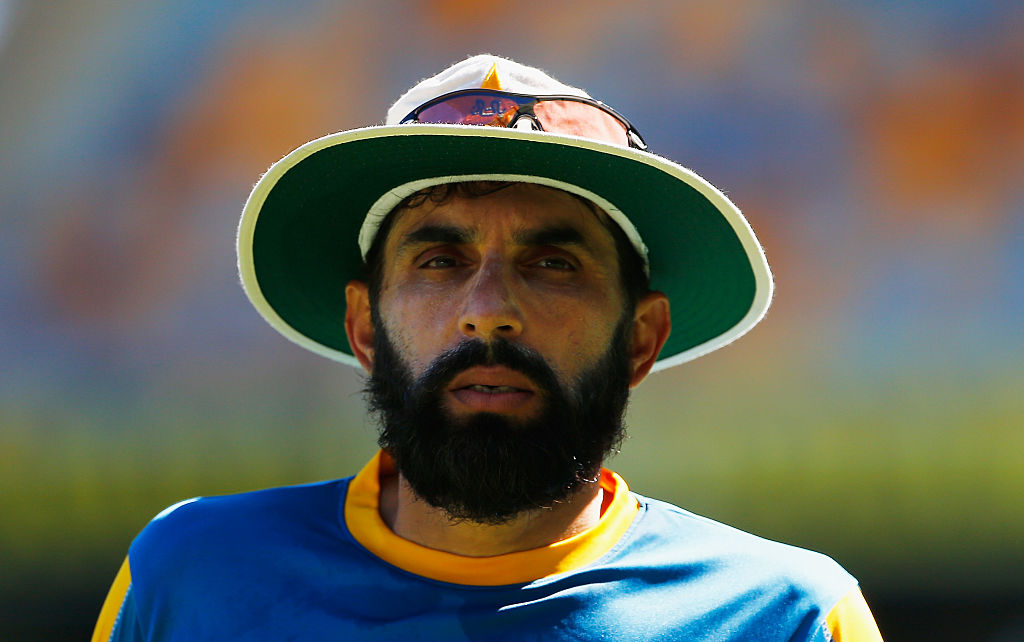Misbah-ul-Haq’s appointment stokes positivity as Pakistan move away from archaic structure
In the truest sense, Misbah-ul-Haq’s appointment in the dual role of Pakistan head coach and chief selector shouldn’t surprise anyone. Ever since the former skipper was given the duty to look after the national camp and further applied for the head coach position - the writing was on the wall.

As the official announcement hit the PCB Twitter handle and Misbah was handed the official appointment letter, Pakistan cricket has also simultaneously moved in the direction of a new structure that will see the light of day on September 14, as the much-awaited new format is set to take over with the Quaid-e-Azam Trophy beginning on that day. It couldn’t have been a mere coincidence, rather the alignment of stars for Misbah-ul-Haq - Pakistan’s very own buccaneering totem - and in extension, Pakistan cricket as well.
Before going to what the future holds for Misbah, it is better to have a fair idea of how Pakistan domestic structure operates. Last week, Pakistan Cricket Board decided to bring a major overhaul of the feeder system and reduced the number of teams to 6 from the earlier-existing 16. In the process, all the banks and departments have been replaced by six provinces Sindh (Karachi, Hyderabad and Larkan), Southern Punjab (Multan and Bahawalpur), Central Punjab (Lahore, Sialkot and Faisalabad), Balochistan (Dera Murad Jamali and Quetta), Khyber Pakhtunkhwa (Peshawar, FATA and Abbottabad) and Northern areas (Islamabad, Rawalpindi and Pakistan-Occupied Jammu and Kashmir).
While the six provincial teams will contest in a four-day competition, the teams will now also have their Second XIs competing in different competitions, fully contracted with the own regional team that would be backed by the PCB until they become sustainable in a couple of years. It is an idea mooted for as long as 10 years, with two faces of Pakistan cricket - Imran Khan and Javed Miandad - advocating for opposite spectrums. With time, it turned out to be an ideological battle instead of a nerdy debate and as things finally transpired, Imran’s views held its ground.
The key reason behind the same is following the successful formula that India, Australia, and in a way, South Africa have followed over the years with regional sides looking after their players better, they go and hunt talent, nurture it and then feed the national outfit. The view that Miandad held was that in a Pakistan economic landscape, where people struggle to get by with abject poverty, they need financial security to be able to concentrate on cricket and banks did a great job in that count. The point was the usual practice never really helped Pakistan cricket in a gargantuan level and the time is ripe to test out Imrah’s POV.
During this testing phase for Pakistan cricket, Misbah’s appointment as the all-powerful man stokes optimism of the highest order. His zen-like stance and stoicism in the face of adversity were seldom discernible to people in the country. What was more revealing was that he took over the captaincy, when they had lost their young leader, along with the services of the most skilful experienced pacer of the generation and the finest young fast-bowling talent in the game. It was to Misbah’s credit that he led them back with aplomb and what would go down as one of the most difficult phases of Pakistan cricket history, he didn’t bog down under pressure and rather became the inspirational leader of men.
That is precisely something that Pakistan need right now after what had happened in England a couple of months ago, there can’t be a better man than Misbah to steer the ship. Although Pakistanis had started respecting the man for what he brings to the table - an unmatched zeal and confidence in his team - it is also true that Misbah had proved that he could streamline any structure as no one else can.
Right now, as the banks won’t get involved in running of cricket matches, that simply means there will be increased importance on the units to identify young talents beyond the state-contracted players and make them eligible for the national team. In that regard, it has quickly been established that there will be the usage of Kookaburra in domestic matches as well, instead of Dukes, and the former skipper’s inputs as a member of the cricket committee were one of the reasons behind this. Implementation is something that needs to be taken care of and one hopes Misbah, for his understanding of Pakistan cricket beyond superficiality, would be of great help.
But why did Pakistan cricket move in the direction of making him the coach and chief selector at the same time? Wouldn’t two men with two different perspectives have been better? While it is easy to rile in support of that argument, people on the other side of the fence can make the case for the fact that it didn’t help the cause due to the blurred vision of two units and the ideological difference that comes with it.
Take this for example. In 2018, Mickey Arthur, in no uncertain words, had made it clear that Wahab Riaz didn’t fit into his plans and he was not in the provisional 30 names announced but in the World Cup, he was picking wickets for fun. Mohammed Amir was dropped for the England series preceding the World Cup but was the spearhead during the mega event. Mohammed Hasnain was hyped up but never found the place, as did Asif Ali, who despite being the only missing link in the side, served drinks for the major part of the tournament. There was a basic need of clarity and the importance of being on the same page and if centralising all the power at one person can bring in a sense of oneness, Pakistan cricket should embrace it with open arms.
During his captaincy reign and post-retirement media days with ESPN Cricinfo, Misbah always came across as an intelligent man - precise in his words and ready to speak his heart on the causes that he believes in. Navigating the ship in the treacherous waters of Pakistan cricket politics would be a challenge but as proven historically, he has always risen above everything to wrap his team in a pragmatic situation. His captaincy stint was memorable and it is no doubt the process will be anything different this time around. It is just a matter of the most successful Pakistan skipper investing his time like the way he did after the 2009 disaster. After all, when there is a cup of woes brimming over, it is the zen that creates magic.

Comments
Sign up or log in to your account to leave comments and reactions
0 Comments